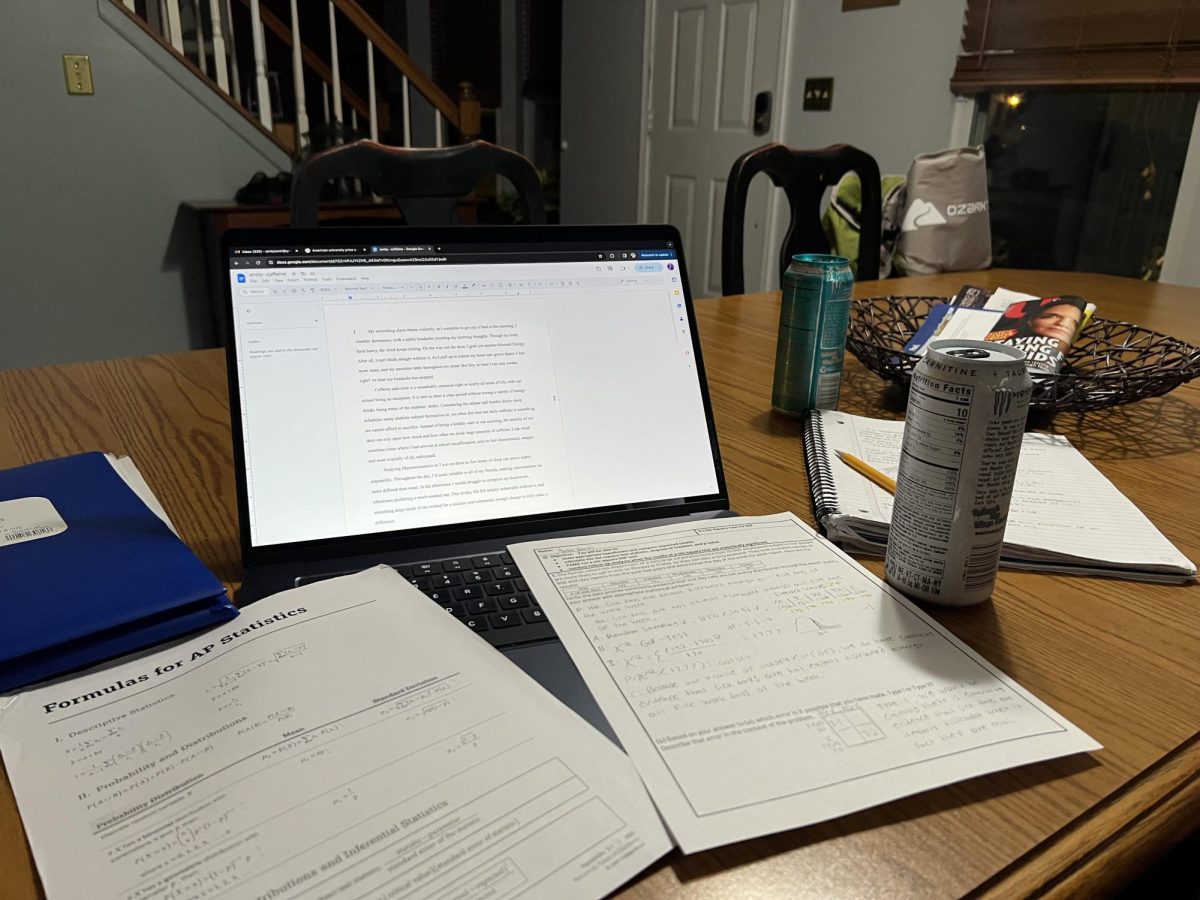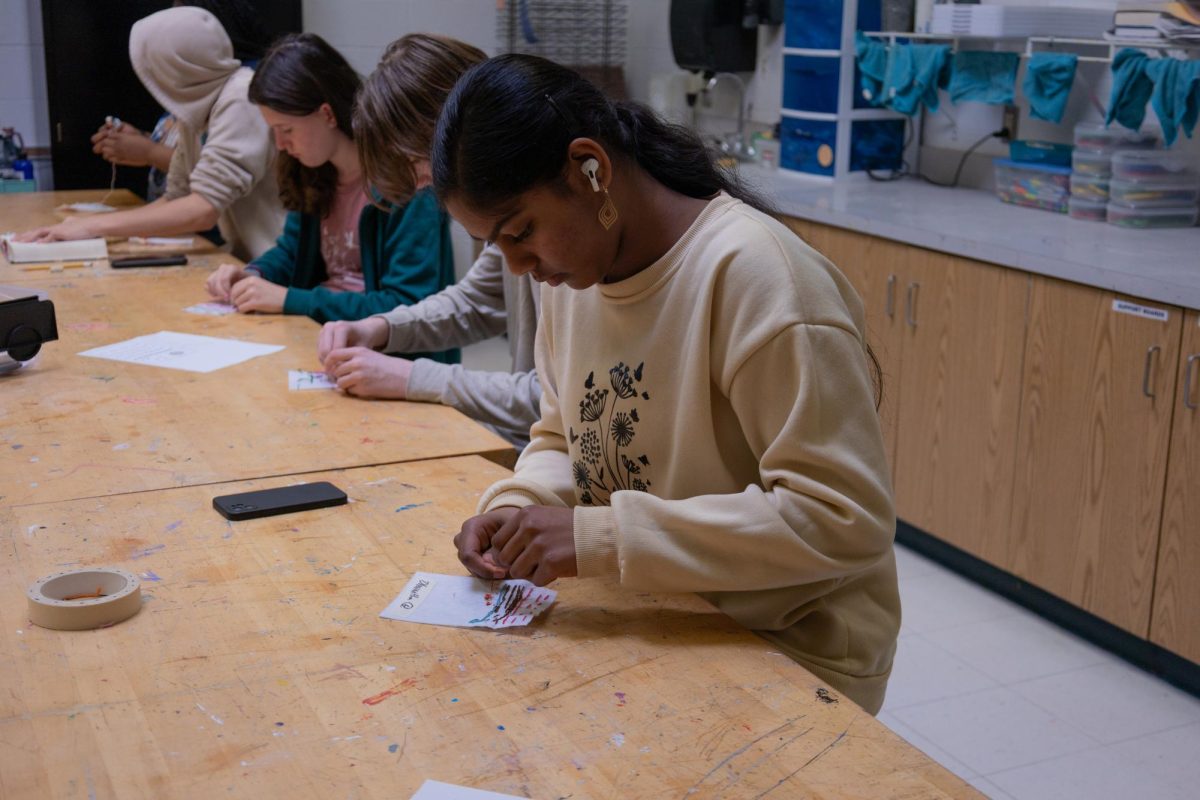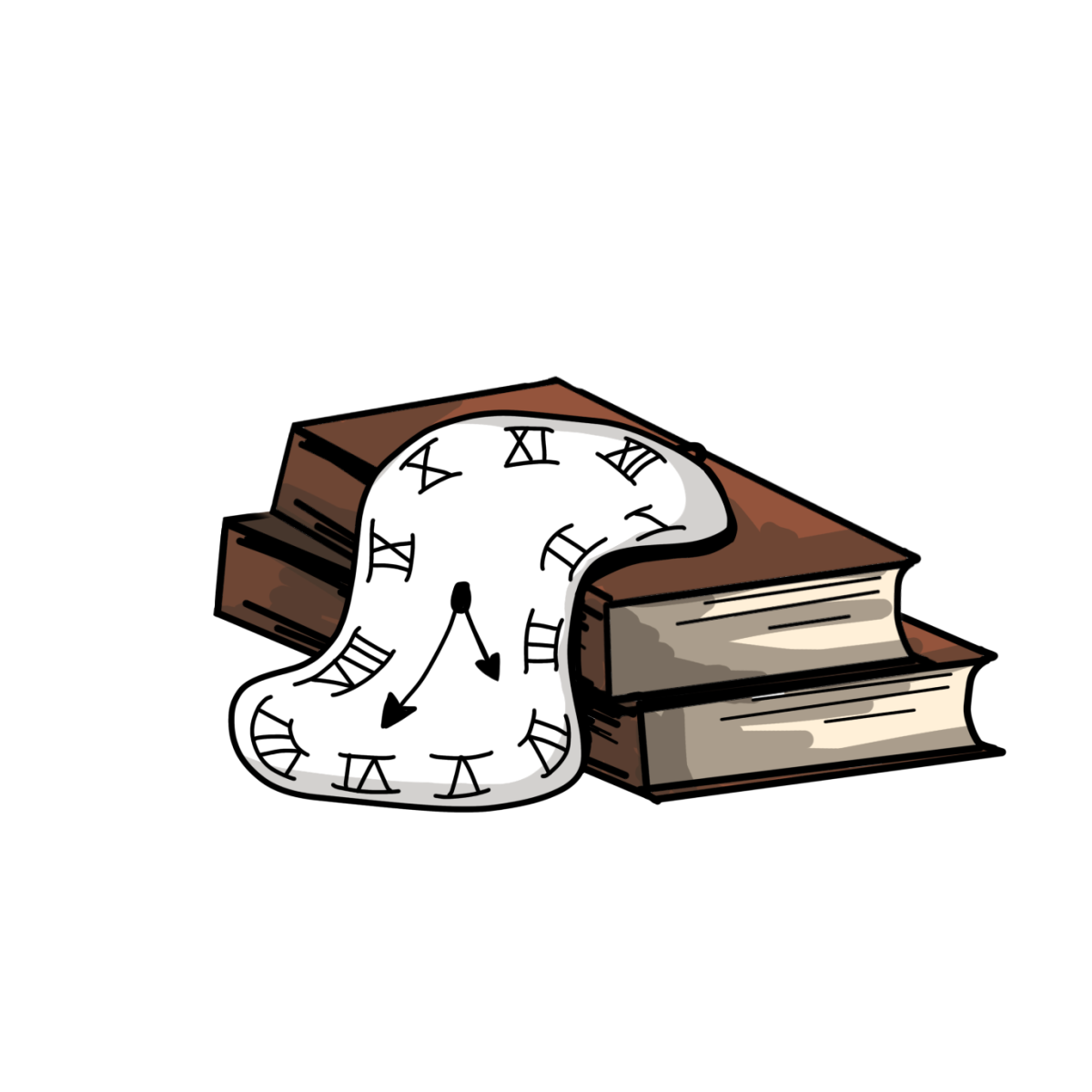My screeching alarm blares violently, as I scramble to get out of bed in the morning. I clamber downstairs, with a subtle headache clouding my morning thoughts. Though my body feels heavy, the clock keeps ticking. On the way out the door, I grab yet another Monster Energy. After all, I can’t think straight without it. As I pull up to school my heart rate grows faster, I feel more tense, and my anxieties rattle throughout my mind. But hey, at least I can stay awake, right? At least my headache has stopped.
Caffeine addiction is a remarkably common sight in nearly all areas of life, with our school being no exception. It is rare to enter a class period without seeing a variety of energy drinks lining many of the students’ desks. Considering the subpar and frankly hectic sleep schedules many students subject themselves to, we often feel that our daily caffeine is something we cannot afford to sacrifice. Instead of being a healthy start to our morning, the entirety of our days can rely upon how much and how often we drink large amounts of caffeine. I can recall countless times where I had arrived at school un-caffeinated, only to feel disorientated, snappy, and most crucially of all, unfocused.
Studying Macroeconomics at 7 a.m on three to five hours of sleep can prove nearly impossible. Throughout the day, I’d seem irritable to all of my friends, making conversations far more difficult than usual. In the afternoons I would struggle to complete my homework, oftentimes preferring a much-needed nap. Day-to-day life felt simply unbearable without it, and something deep inside of me wished for a realistic and substantial enough change to truly make a difference.
I wanted to see a change, yet every attempt made beforehand failed in a matter of days. For months I had existed within a cycle of caffeine addiction with there being a break followed by the inevitable return to said addiction. I had this strong desire inside. I wanted to prove to myself that I was capable of being a fully functioning human being, caffeinated or not. Though at times I would give up the struggle, my belief in myself would ultimately return.
This hope encouraged me to try a couple of strategies aimed at reducing my dependence on caffeine. I first attempted to quit drinking it immediately. This method resulted in bothersome headaches, the pain of which discouraged me from continuing any further. I then attempted to shift the times of day in which I would allow myself to drink caffeine. I began skipping out on caffeine in the mornings, whilst also avoiding caffeine any time past the late afternoon. Not only was this method much more sustainable, it had a plethora of tangible benefits of which I began to see rather quickly.
I felt less anxious getting up and moving in the mornings, with the world around me seeming far calmer and relaxed as I got ready for the day before me. I could lay down at night, knowing I would be able to wind down and fall asleep much quicker than before. My now rest-filled nights made those morning classes much more enjoyable. I even felt less exhausted in the afternoons, allowing me to get a grip on my nightly homework earlier, allotting even more time for sleep.
The truth of the matter is, there is simply no one size fits all solution to caffeine dependence for all people. However, being mindful of the ways in which caffeine consumption fits into your life can allow you to build a sustainable and healthy relationship surrounding it. After all, just knowing is half the battle.










